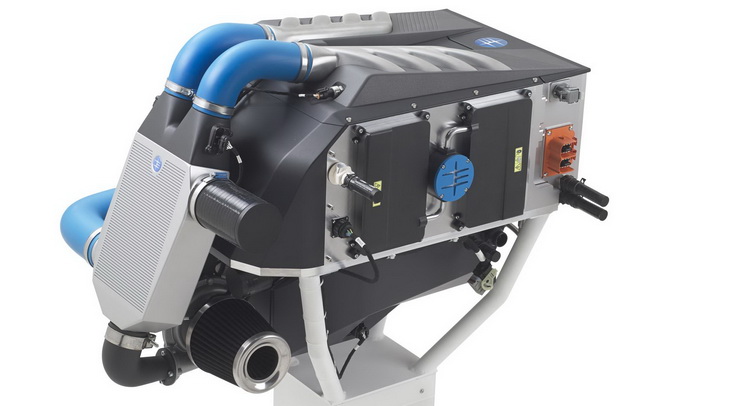Following the automotive industry in the last couple of years, one couldn’t be blamed for thinking that hybrid & all-electric power units will make up the bulk of the industry’s alternative fuel solutions.
Going back a few years, people were raising their eyebrows at hybrids, thinking that the technology isn’t moving fast enough and won’t be headed in any performance-oriented directions any time soon. Maybe it’s time to learn from our mistakes and stop being so afraid of change. It’s the only constant.
The guys over at Intelligent Energy are dealing with change all the time. In fact their proprietary evaporation-cooled (EC) technology is unmatched in stack power density – which is good news for all of their clients interested in further developing FCEVs.
They’ve also developed an innovative 100kW fuel cell architecture, designed to deliver primary motive power within an advanced electric driveline. The system takes advantage of IE’s low cost, high volume production stack technology with a power density of 3.5kW/l (volumetric) and 3.0kW/kg (gravimetric).
IE has been in the game for 25 years and they collaborate with a number of global vehicle manufacturers as Managing Director James Batchelor points out “Our capability and proven technology provides a cost-effective opportunity for any vehicle manufacturer without a presence in this fuel cell power-band to jump ahead of its competitors. Our 100kW platform provides automotive OEMs with a fast-track route to our next generation evaporatively-cooled stack technology, integrated into a compact system architecture.”
Before you go and think that pretty soon the world will be taken over by the likes of the Toyota Mirai, know that cars aren’t the only means of transportation that utilize fuel cell technology. IE has worked together with Suzuki for the past 8 years, as their collaboration led to the introduction of the world’s first approved fuel cell powered scooter.
Even public transportation can benefit from these solutions as we currently have over 100 fuel cell buses deployed around the world – produced mostly by UTC Power, Toyota, Ballard and Hydrogenics.
As for cars, the 100kW architecture is being launched at a time when awareness about FCEVs is on the rise thanks to car manufacturers such as Toyota, Hyundai and Honda.
The beauty of alternative energy is precisely that it’s ‘alternative’. It doesn’t have to represent the only solution. We don’t need to choose between hybrids, electric cars or FCEVs. We can have all three – at least for a while, until hybrids will cease to exist all together.
















